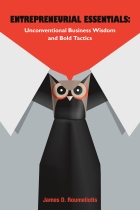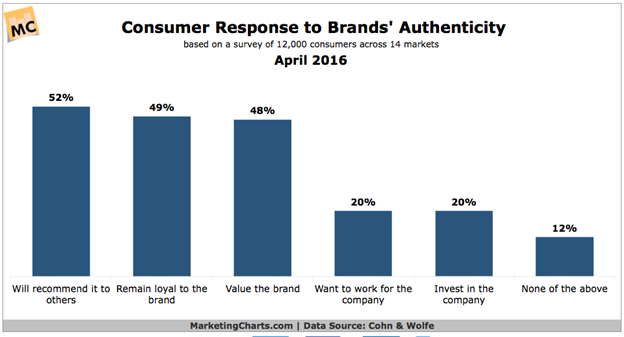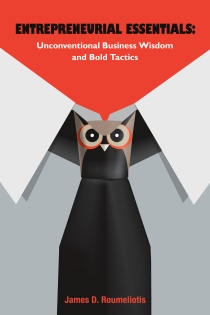
The hospitality domain has begun recovering from its 15 month or so pause in bookings and vacancies due to the Covid-19 pandemic. Getting back to a new normal business mode requires a refined approach to attracting and retaining guests/clientele. Hopefully, the operators will profit from lessons learned from recent history along with adequate time they were reluctantly bestowed for reflection. From the following five types of hotel guests, each requires a different approach to effectively attract them. However, in regard to retaining them, the approach is the same across the board. Seamless service and creating a pleasant total guest experience will most certainly turn them as your raving fans. Nowadays, and moving forward, contactless check-in and check-out will be expected. Exceptional service should not be merely exclusive with luxury properties. Nothing can and should be taken for granted. Do not meet guests’ expectations, instead, surpass them.
1. The Leisure Traveler
The leisure industry is the segment of business focused on entertainment, recreation, and tourism. To the leisure traveler, it is about going on holiday for fun, excitement, and relaxation ─ a vacation get-away whether for a few days or weeks. This may include relaxing on a beach or on the premises and/or going on guided tours and experiencing local tourist attractions.
Offering the guest enjoyment with the ultimate mix of relaxation and inspiration is key to winning them over repeatedly.
Along with the expectations of the staff being quite accommodating, the discerning leisure traveler in a luxury hotel expects generous property amenities and refined services such as:
- Complimentary fashion house brand toiletries
- Nutritious breakfast
- Hair styling tools
- Flexible checkout
- Complimentary electronics chargers
- Spa & wellness niceties
- Exercise facilities
- Distinctive and artistic entertainment
- Custom offers
- Curated experiences
- Fancy bathrobes
- Limousine service available
- Kid-friendly rooms
- Premium bedding
2. The Business Traveler
Unlike a leisure traveler, the business traveler is a hotel guest who arrives strictly for work. He or she is not there to view the sights. However, this traveler will be interested in local restaurants and coffee shops he or she can use for business and personal purposes. Typically, their days are long and full of meetings. More than likely, they’ll want to come back to their rooms to relax and have a quiet meal before doing it all over again the next day. While also in town for work, make time in their schedules for more leisure and tourist activities. The business traveler might extend his or her work trip into a long weekend and have a brief vacation before returning home.
To appeal to business travelers, keep the following into consideration:
Easy check-in: Business travelers demand a quick and effortless check-in process. Always make certain you have adequate, efficient and polite staff at the reception desk to meet this need. Consider offering online check-in with keyless room entry.
In-room business features: Fast, reliable internet along with conveniently located ample power outlets
Co-working spaces: Create spaces and perhaps restaurants too where business travelers can work or have meetings.Loyalty programs: Creating a strategy for repeat business, like offering some free nights for a minimum number of overnight stays during each check-in is one effective way to attract and create repeat business. Alternatively, extend the negotiated discounted room rate through the weekend or add a few days pre-conference to encourage guests to stay longer or arrive early.
Work with local attractions and businesses: Offer incentives like discounts at local restaurants and shops or tickets to a museum or a show.
Having a solid CRM set-up, with proper usage, will make engaging with the guests/clients seamless.
3. Families
Families that travel together want to have shared experiences. With families, there will likely be differing styles of travel and preferences within the group. The key is to have something for everyone. Think like a parent and provide in-room amenities that can keep the youngsters occupied, like game boards, books, and fun snacks. Also, offer a nanny or babysitting service and a list of family care services in the area, as well as kid and family-friendly attractions and activities, such as discounted vouchers for the zoo, aquarium, and/or museums.
In addition, offer the ability for families to avoid carrying heavy cases and flight bags by providing essential items that enable families to travel lighter. This can be accomplished with guests reserving baby/toddler equipment online via the hotel’s website. In addition to an array of essentials, such as playmats, potties, and buggies, parents should be able to also request, ahead of time, non-essentials such as storybooks, swimming jackets and even car seats requested for private transfers.
4. Event Attendees
Event attendees can be a mixture of business and leisure travelers. Some might want to attend the conference and relax alone in their rooms, and others might be looking to explore the city more in their off hours. Most often, event attendees are interested in networking with others at the event and will seek entertainment after the end of the day’s events. This is where, as a hotel operator, you can attract and retain them by providing unique experiences for attendees that they will much appreciate and distinguish you from competing nearby hotels. To entice them, offer to organize receptions and other social activities for them, prior to checking-in, and make it easy for the attendees to add on their reservation. Additional activities can include a poolside happy hour, a dinner cruise (if applicable), or other group activities at a local attraction. Provide those guests incentives and special deals such as discounts for additional night stays or an exclusive dining experience at the chef’s table of your hotel restaurant.
5. Health and Wellness Travelers
Aside from travelers in general being more aware of cleaning and sanitization due to COVID-19, wellness travelers are those who are taking a trip to promote their own health and wellbeing. This type of traveler will most likely be interested in holistic wellness packages which include relaxation, detoxing, and practicing healthy habits during their trip. Some will be more concerned with physical and mental wellbeing, therefore features such as fitness, outdoor excursions, as well as yoga classes, workout sessions, spa treatments, guided meditations, and healthy dining options could be appealing. Additionally, more people will be looking for staycation trips. As a result, hotels should consider focusing their marketing efforts on guests who reside within a two-hour drive.
Creating Loyalty through Exceptional Service and The Total Customer Experience
What good is it to be an upscale hotel establishment with generous amenities if the service is weak? The “total customer experience” is defined as the interactions and relationship between a company and its customers. The customer experience journey can include how a customer interacts with a company’s employees, facilities, and marketing, in both the real and digital worlds.
The holistic approach to the total customer experience will make the difference between a single visit type of customer and a repeat and loyal customer.
The service dimensions consist of reliability, responsiveness, assurance, empathy which characterize an emotionally intelligent and spirited staff with tangible elements in the ensuing way:
- Reliability reflects the service provider’s ability to perform service dependably and accurately.
- Responsiveness is a strong indicator in assisting guests and providing prompt service.
- Reassurance reflects the courtesy and knowledge of employees and their ability to inspire trust and confidence.
- Empathy involves the caring individualized attention the brand provides its guests.
- Tangible elements include the facilities, amenities and ambiance felt by the guest directly or indirectly.
A company’s reputation for excellence in the services sector can be developed and supported, as long as the firm has a strong organizational culture oriented in high quality service, customer focus throughout the organization, as well as a dynamic set of employees. They are conscientious and committed to act within the quality standards which the company has established.
For a hospitality organization to achieve high levels of customer service and maintain constant satisfaction, it should develop and implement a structured service strategy, which covers all necessary actions on what measures and actions will be taken to:
- Create a customer-centric culture.
- Develop and install appropriate infrastructure service delivery system.
- Identify the necessary procedures to recognize and meet the needs and expectations of guests.
- Refine and encourage staff to speak with the right attitudes, skills and behaviors to internal and external environment of the company and towards the guests.
- Measure – evaluate the degree of guest satisfaction.
- Continuously implement practices to improve internal operations and procedures relating to excellent guest service.

Contactless Check-in & out
A 2020 study revealed that 73% of hoteliers agree that self-service tech will become increasingly more important to their business and when asked what makes a good hotel stay, 90% of millennials said they would be interested in checking-in in a hotel through their mobile phones. If those statistics were pre-pandemic, imagine what they would look like nowadays. Guest expectations are not static, they evolve indefinitely. Contactless check-in and check-out do not have to be impersonal. The experience can be seamless and pleasant, whereby the hotel staff can still remain in touch with guests even without ever seeing them in person. During─and eventually post Covid-19, guests are demanding the highest levels of hygiene, ‘sanitization’ and social distancing. Study shows that 84% of guests would feel much safer with social distancing practices in a hotel and 71% of guests are more likely to stay in a hotel offering self-service technological capabilities.
On a Final Note: Targeting the Most Profitable Segments for Your Hotel
There are five main generational segments recognized by marketers. Each generation certainly differs and each of whom have unique spending patterns and personal preferences. Their main characteristics are summarized as follows:
Credit: Hotelbeds





For advice on attracting Millennials and Gen X, reach-out to me at jdrazure(at)gmail(dot)com
_____________________________________________________________
Request your TWO FREE chapters of this popular book with no obligation.








